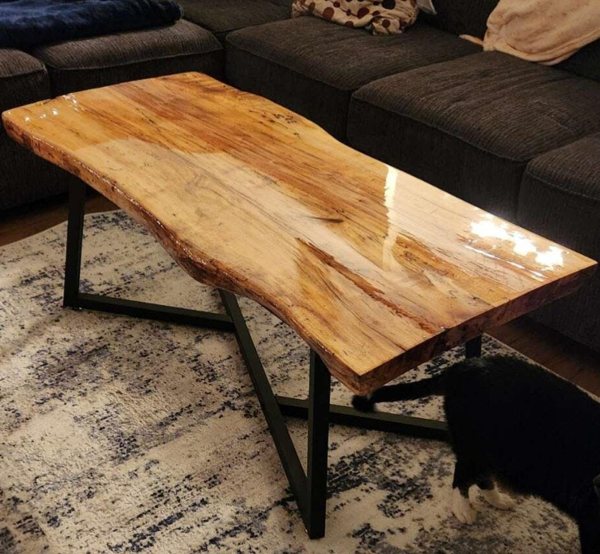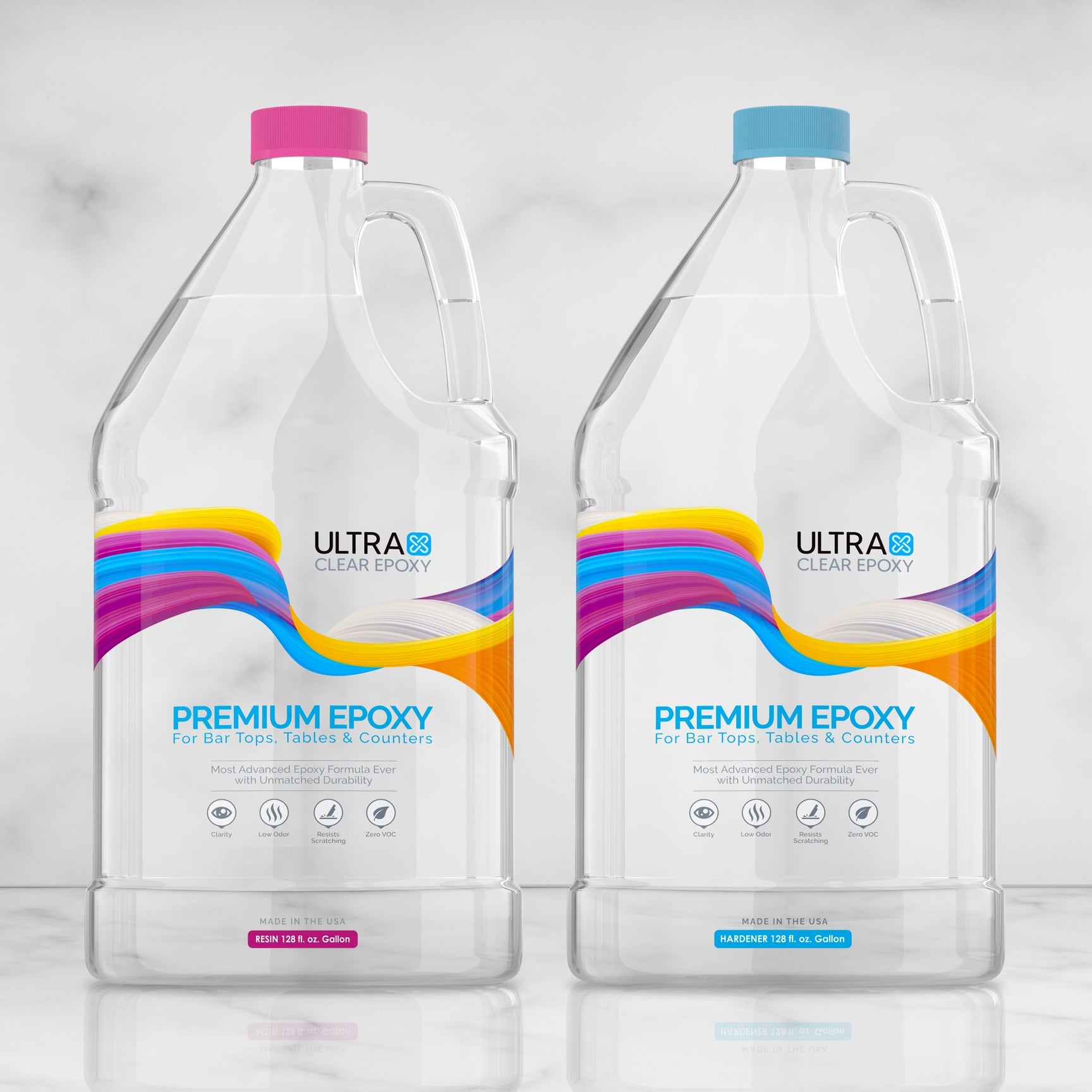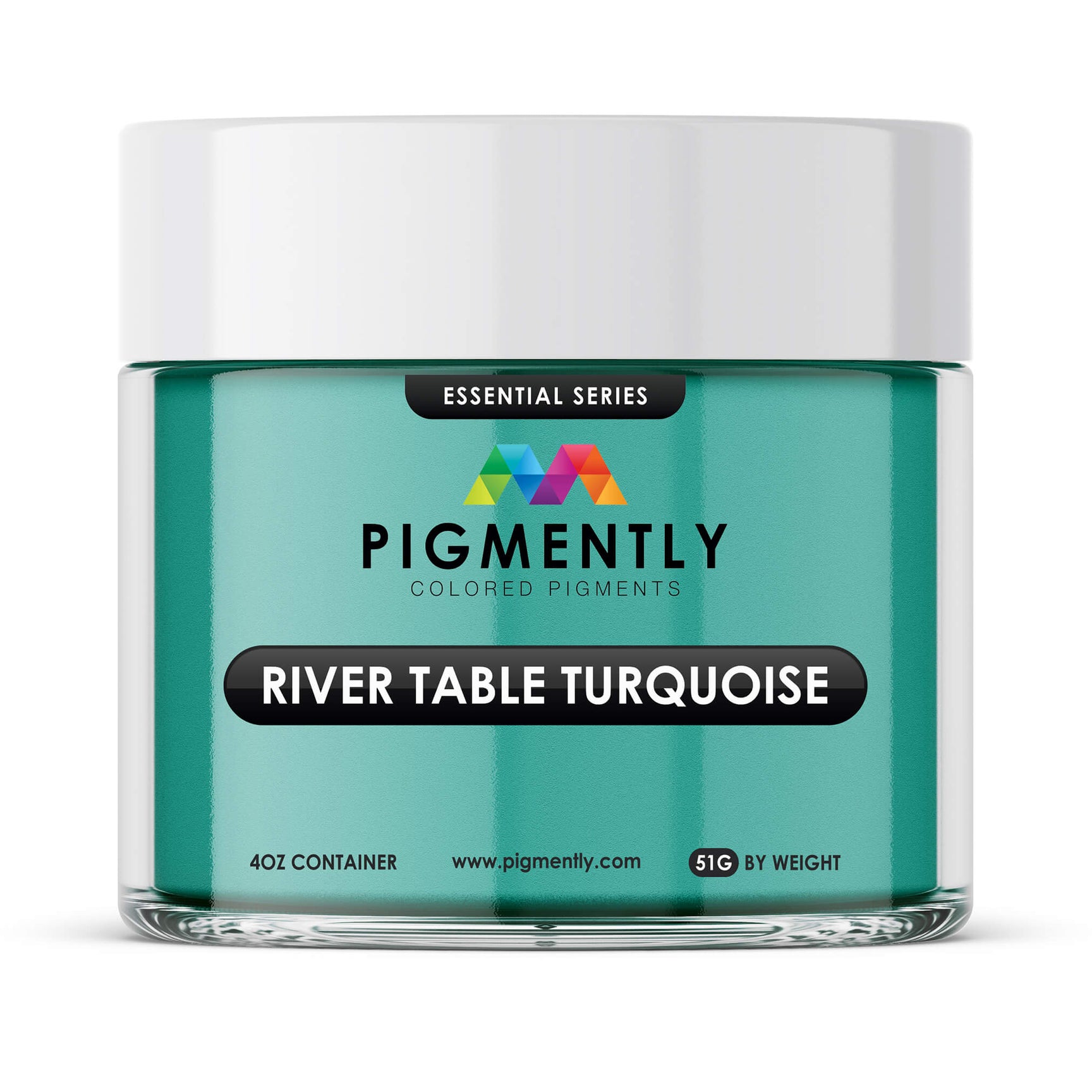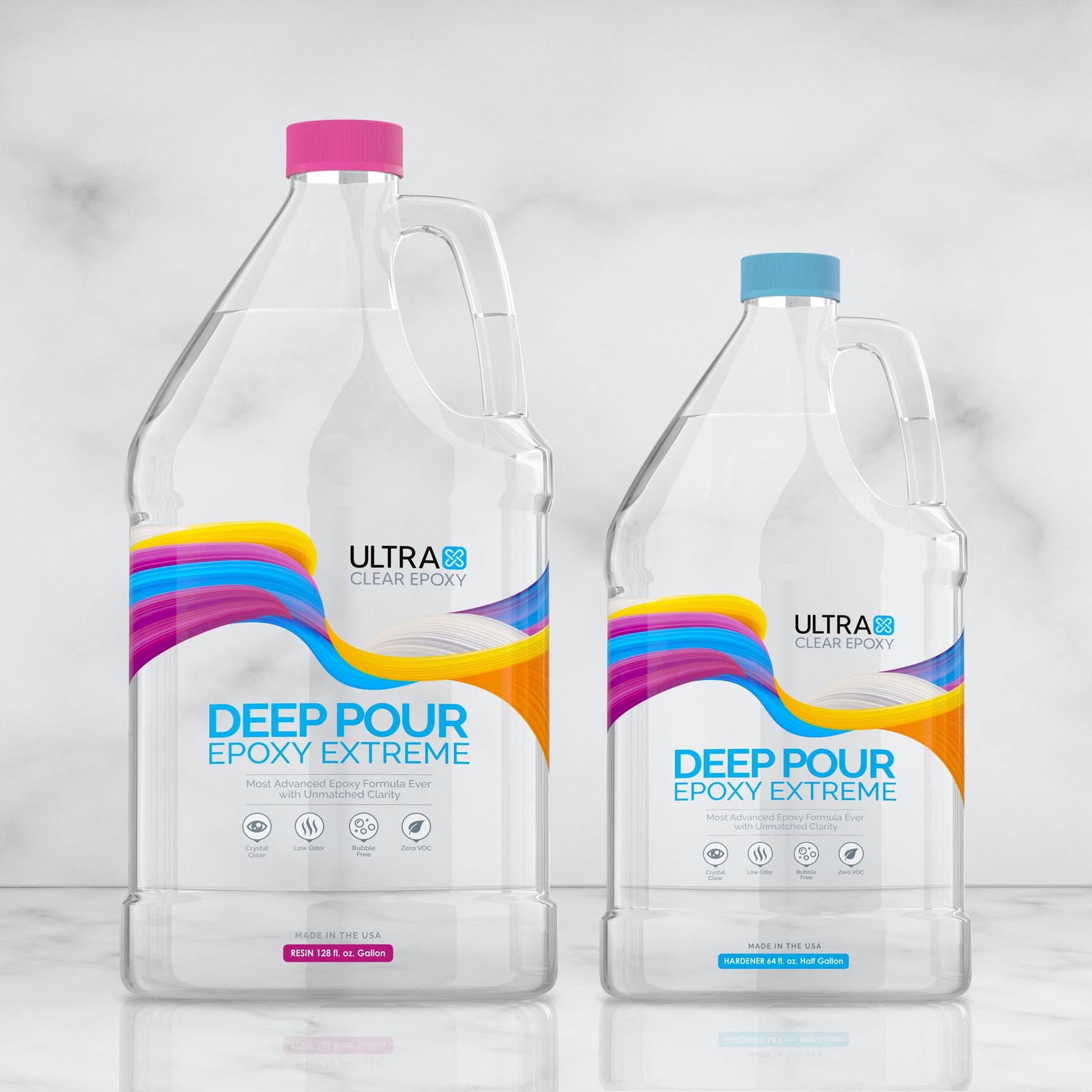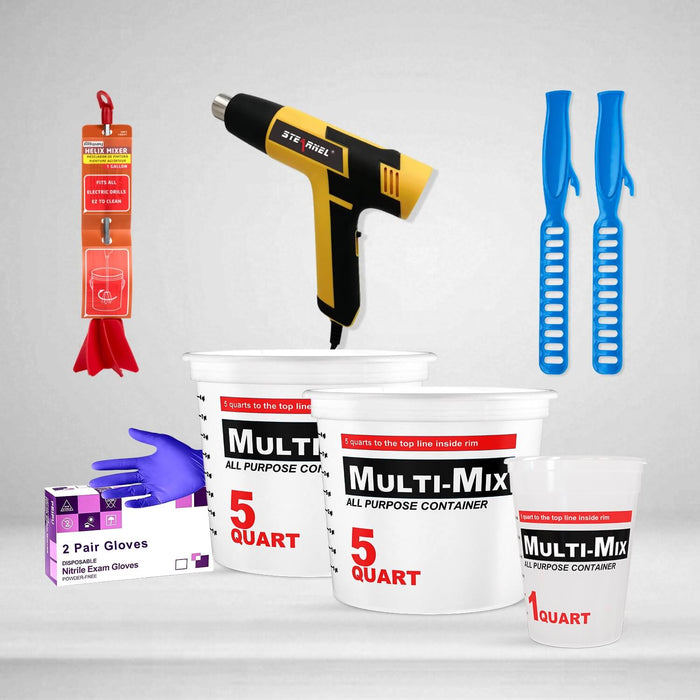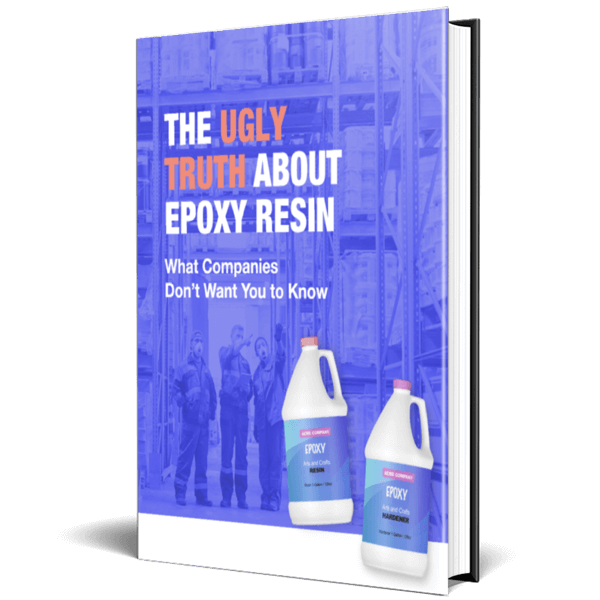Epoxy resin is best known for its role as a sealant and as a medium in the creation of various arts and crafts.
Though many people just refer to the product they use as epoxy resin, there are actually several variants of epoxy that get used depending on the needs of a project. In some cases, multiple types get used, to achieve optimal results.
Each of these different epoxy types carries distinct advantages over the others in certain situations. By understanding how they differ from one another, epoxy creators can determine which resin products are best for their goals.
Is casting resin better than table top epoxy?
No, casting resin isn't better than table top epoxy—it's just different from it.
Each epoxy type serves a particular purpose. Though one epoxy type can often serve adequately in the role of another, it's much easier to obtain ideal results by using a suitable epoxy resin for each project.
The epoxy types and what they're for:
-
Table Top Epoxy - This is the most common type of epoxy. It features the highest strength and durability, and it has a high viscosity that even allows it to be applied at steeper angles. Its downside is that it has a short working time and can't be poured in thick layers.
-
Deep Pour Epoxy (aka casting resin) - This is what most people think of as casting resin. Deep pour epoxies are much thinner than other epoxy variants, with high fluidity and low viscosity.
This is the type of epoxy that one would use to fill in a reservoir or river table vein. It's good for filling deep silicone molds and can be poured in thick layers of up to 2 inches (depending on the quality/brand).
-
Art and Craft Epoxy - This epoxy stands somewhere in the middle. It has lower viscosity than table top epoxy, allowing it to be used as a casting resin, but it's still higher than that of a deep pour epoxy and as a result isn't suited for deep layers.
This resin type is perfect for the creation of resin art, epoxy jewelry, and for coating small objects such as tumblers, cups, and dishes.
-
Marine Epoxy - This epoxy stands on its own for its unique outdoor curing capabillity. It's designed to cure in humid environments and is most often applied to watercraft.
Marine epoxy doesn't have the crystal-clear finish that the other types of epoxy do, instead curing with a light or dark amber tint (dependant on the type of hardener needed). Yet because most watercraft get painted afterward, this rarely matters. In turn, the user benefits from its versatile application and its ability to cure in outdoor inclement settings.
When should you use casting resin over table top epoxy?
Casting resin is a better choice over table top epoxy in certain situations.
For instance, to create a river table, a thick vein of epoxy is often poured into a space between sections of the substrate (which is often made from wood). While not all river veins are deep, many of them are thicker than the recommended layer thickness of table top epoxy. This makes a deep pour casting resin a much better choice for filling in that space.
Why it works this way:
Deep pour epoxy handles thick layers better than table top epoxy due to its lower viscosity. When epoxy is applied to a substrate, most of which are porous, it attempts to settle into any minuscule pores, grooves, and holes in the substrate material. Then, once it has cured, the user ends up with a much stronger bond as a result.
However, pores typically contain air before the epoxy seeps into them, and when this permeation occurs, the air is pushed outward and attempts to escape to the surface. With a thicker epoxy like table top epoxy, it's possible that the air doesn't reach the surface if the layer is too thick, instead settling within the resin coating as air bubbles. This issue can be reduced by first applying a seal coat.
On the other hand, when using a deep pour epoxy—because it's thinner and easier to pass through—the air is far more likely to escape even a sizable 2-inch layer.
This concept applies to any type of epoxy project calling for greater depth than a table top epoxy is designed for.
Always choose what's best for your project.
At the end of the day, the epoxy you use should be what's best for your project, not simply what's strongest. All epoxy variants are strong and will last a long time with proper care. They're also all easy to clean up, and require little maintenance.
If your project is a standard countertop, bar top, or table top finish, you likely only need our UltraClear Table Top Epoxy, which has the highest resilience and physical resistance.
If instead you want to create an epoxy river table—or if you'd like to do some deep casting using silicone molds—then you're probably better off with UltraClear Deep Pour Epoxy. If you want to go the extra mile, you can also finish any Deep Pour project with a topcoating of Table Top Epoxy to give it that top-tier durability.
And, finally if you're not sure what you need, please reach out to us at UltraClear. Our experts are happy to assist you by explaining more about how epoxy works and also by helping plan your epoxy project.
Additional Resources
Here are some additional resources you may find useful:
- What is the easiest resin for beginners? - New to epoxy? Get a good idea of where to start here with our explainer for beginners.
- What is the difference between table top epoxy and "regular" epoxy? - Discover the difference in meaning between table top epoxy and regular epoxy.
- Epoxy resin basics: How to apply multiple layers - Learn how to apply multiple layers of epoxy consecutively in this guide.
Have questions? Want advice? Contact us!
If you have any questions about casting resin and table top epoxy, or if you'd like assistance in planning an epoxy project, please reach out to us at UltraClear Epoxy—our epoxy experts are ready to assist!
You can contact us via phone or email here. During business hours, you can also text chat online with one of our resin specialists by clicking the Help button at the bottom of your screen.
In our online store, you'll find a variety of useful tools and supplies, ideal for resin projects, plus our award-winning UltraClear Bar & Table Top Epoxy and our UltraClear Deep Pour Epoxy.



